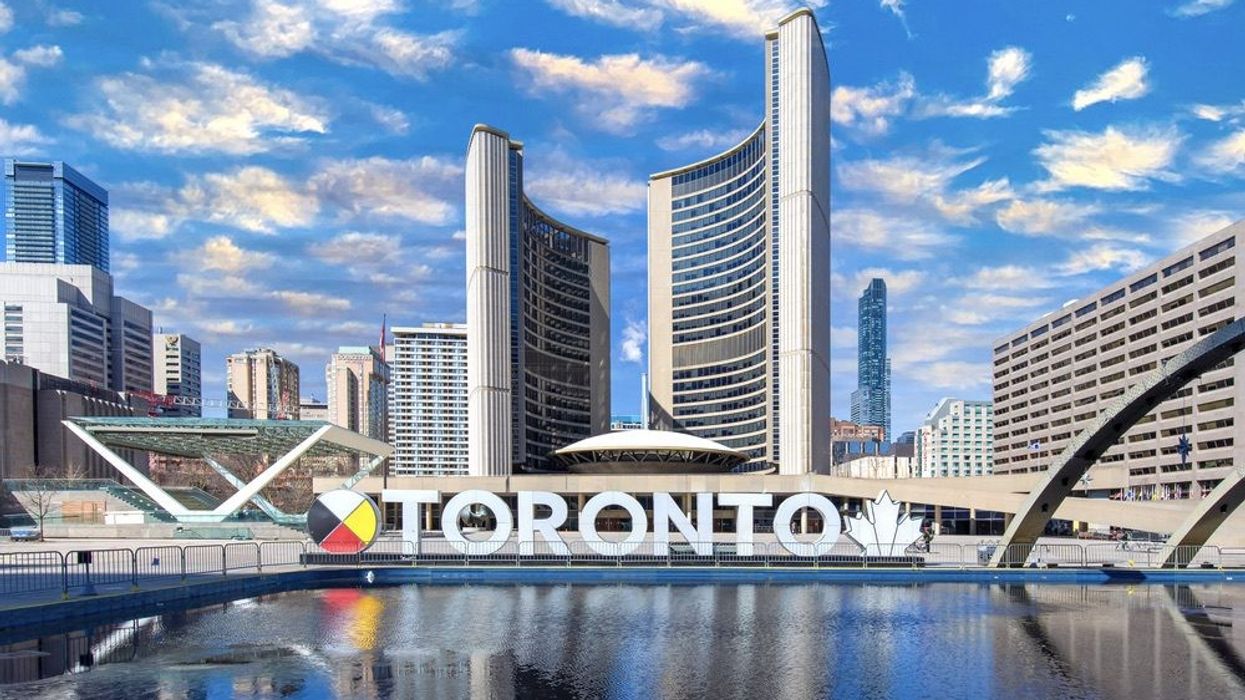The irony was hard to miss; just weeks after being named Toronto’s first “strong mayor,” John Tory was forced to step down after the Toronto Star revealed he had had an “inappropriate relationship” with a female staffer half his age. His Worship’s shocking resignation was a brutal reminder -- if one were needed -- that new powers don’t change old weaknesses.
In one fell swoop, Tory not only destroyed his political legacy, he also left his reputation for personal integrity in tatters. After all, he decided to run for a third term last October despite the affair, yet another “lapse of judgement.”
In the process, Tory also revealed the folly of his demand that the mayor be allowed to have his way with only one-third of council votes. Clearly, Tory’s lapses are confirmation that power works best when shared, not concentrated in the hands of a single individual, no matter how well intentioned. The decision to abandon democratic norms -- requested by Tory, granted by Ontario Premier Doug Ford -- has been revealed for the hideous blunder it is. The city would be infinitely better off with a strong council rather than a strong mayor.
Given that Tory’s rise to the city’s most powerful office occurred in the aftermath of Rob Ford’s disastrous regime, Torontonians expected more from His Worship. But Tory’s initial appeal -- his presentability -- turned out to be just another false promise from another wannabe politician.
In fact, since he first took office in 2014 after defeating Rob Ford’s brother Doug, Tory largely failed to deliver even on his remarkably low-bar pledges. From the beginning, his agenda extended little beyond keeping property taxes at or below the rate of inflation. Even his grand transit plan, Smart Track, went nowhere quickly and has since been forgotten.
No wonder many Torontonians now feel that during his more than eight years at the helm, Tory failed to stop the decline of a community once globally celebrated as the “city that works.” Under Tory, Toronto’s celebrated liveability has undergone a near-death of a thousand cuts.
His commitment to out-dated misconceptions about our reliance on cars, expressways, speed limits, and parking killed any hope he might be the mayor to lead Toronto into a sustainable future. Instead, he let the city fall behind much of the world. Keeping taxes low came at the cost of improving public transit, eliminating homelessness, building affordable housing, enhancing liveability, maintaining a state of good repair, dealing with global warming, not to mention fixing potholes and broken garbage bins or cleaning up the streets.
Most fundamentally, perhaps, Tory was undone by his need for approval and his desire to be liked. No one ever doubted that he was a nice guy but leadership, especially in such unsettled times, requires a willingness to be tough when necessary and make hard decisions even when that means angering voters. Maybe Tory thought that by asking Doug Ford for enhanced powers it would make his job easier. Instead, it made him look weak, even petulant.
The eagerness with which he turned to the police to handle problems like homelessness marked another failure of leadership, political and moral. Choosing to focus on the most visible symptoms of decline rather than their causes revealed Tory to be badly out of touch with the city and its residents.
To be fair, civic politicians have precious little say over the problems that keep them -- and us -- up at night. In recent weeks, Tory finally appeared to wake up to the hopelessness of the financial mess Canadian cities face. Without access to more than property taxes, the odd user fee, and occasional handouts from Ottawa and Queen’s Park, Toronto is being sucked into a downward spiral of diminishing revenue and rising demand. Indeed, the sucking noise can already be heard from one end of Toronto to the other.
Unhappily for Tory, even on those rare occasions when he attempted something progressive, he was unceremoniously reminded of the city’s impotence. A good example came in 2017, when then Premier Kathleen Wynne summarily dismissed Tory’s request to toll the Don Valley Parkway and the Gardiner Expressway. Her message was blunt: stay in your own lane, stick to cutting ribbons, collecting the garbage, and leave the big decisions to us. Even mild-mannered Tory was moved to complain about being treated like a “boy in short pants.”
And let’s forget that humiliating moment in 2021 when Tory’s grand projet, Rail Deck Park, was snuffed by a provincial agency. In its ineffable banality, the Local Planning Appeals Tribunal ruled that developers owned air rights to the 21-acre site. Toronto be damned.
If any doubt remained, it was instantly removed: the city has no control over its destiny.
Toronto’s role as Canada’s economic engine owes more to many factors -- immigration, Quebec separatism, and the financial and media sectors -- than any government policy, provincial or federal. In truth, Toronto’s ascendance has been achieved despite the actions of governments, politicians, or for that matter, mayors. The only exception, David Miller, actually managed to cajole then Premier Dalton McGuinty into revamping the City of Toronto Act. Sadly, Toronto has been reluctant to implement many of the admittedly limited powers the legislation gave it.
If there’s a silver lining to this, it will be a renewed focus on local politics and the chance for a fresh start, civic reset and renewal. Last October, when Tory won his third term, turnout was just 29%, the lowest in city history. Of the 1.89M eligible voters, only 551,886 bothered to vote for mayor. Of those, Tory received 342,158, respectable but only just.
Clearly, municipal politics bore Torontonians. But this is a huge, if unexpected, moment. With Tory gone, the slate is clean. The mayoralty is up for grabs for the first time in nearly a decade. Like it or not, change isn’t just possible, it’s inevitable.
Now is Toronto’s great opportunity to move past its no-can-do culture of parsimony and regret and dream again of greatness. The question isn’t what we might lose, but what we stand to gain.



















